By Kevin Juhasz
For Huskie Tools
We’re almost upon the holiday season in our nation. The time when we give thanks for the people in our lives and make an effort to show appreciation for those around us. There are lots of people who help others in the world, but there’s one profession that’s touched all of us across America for almost two centuries – the lineworker. They deserve our thanks for all they do.
1. Linemen helped build America
It started in the 1840s, when lineman begin erecting wooden poles and stringing telegraph wire across the nation. The first wires were set up between Washington, D.C. and Baltimore, when Samuel Morse sent his first transmission of “What hath God wrought?” In the 1870s, it was linemen who put up the wire for telephones as our means of communication expanded. As America’s need for electricity began to grow in the 1880s, it was lineworkers again who gathered their lineman tools and put the infrastructure in place to meet the demand. This work went over every imaginable terrain, across rivers and lakes, and to the most important places – our homes and businesses.
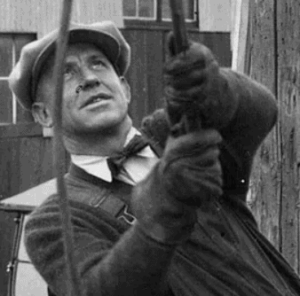
2. Their work is the greatest accomplishment of the 20th Century
The electrical work by lineman was named the greatest feat of the 20th century by the National Academy of Engineering. There are 5.7 million miles of electrical line in the nation – 200,000 of high-voltage transmission and 5.5 million miles of local lines. That’s enough to wrap the equator of the earth in wire 229 times. You could take that wire to the moon and back 14 times and have enough left over to go back and forth from NY to LA twice.

3. They keep the country running
As much as we’d like it to, all of these poles and all of that wiring can’t be designed to work forever. But to get as much life out of it as possible, the system has to be maintained. With regular attention, electrical lines can easily last 100 years or more. Wood poles with no routine maintenance last around 35 years, which can be double if they get routine care. Without this maintenance of the system, it simply wouldn’t last very long.

4. Linemen run toward the danger
It’s not just age that’s the problem facing the electrical and communications infrastructure. There is plenty that Mother Nature and man are throwing at it – hurricanes, tornadoes, thunderstorms, blizzards, winds, storms, ice, fires, and more. There’s also the continued danger with conventional weapons, cyberattacks, and solar flares.
While most people are fleeing the danger, it’s up to lineworkers to move toward the danger, so everything can be restored when the immediate danger has passed. It’s these workers that go in to the areas hit by disaster to assess the damage, make repairs, and bring back normality as quickly as possible. A lot of times, it’s not just the workers in the area that are tasked with this work. Areas that are hard hot require assistance from workers that don’t reside in the disaster zone and don’t have complete knowledge of the land.
Weather isn’t the only factor, human and animals can also cause disruptions in the grid either though contact with the system or other dangers, such as fires.
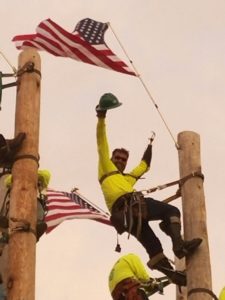
5. And as a result, they have one of the most dangerous jobs in the nation
Since the job of lineworker was born in the 1800s, it has either been one of, if not the most, dangerous job in the country. There are typically around 20 fatal injuries for every 100,000 lineworkers in the United States each year. The rate of injury for lineworkers is almost double the national average. Some of the injuries can be life-changing, including loss of limb. A heavier focus on safety is helping to make it a safer career, but it still ranks in the top 10 of most dangerous careers every year.
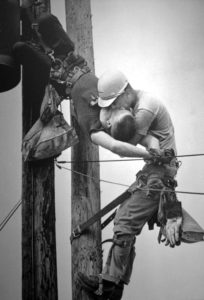
6. Linework is demanding
Being a lineworker is a demanding job, both physically and mentally. When power or communications are down, this work needs to be done regardless of weather conditions or time of day. Lineworkers sometimes put in 14-hour days with no days off depending on the situation. It’s difficult work climbing poles, getting the infrastructure into place, working with tools, making sure everything in place, all the while making sure all to be safe for themselves and the workers around them.
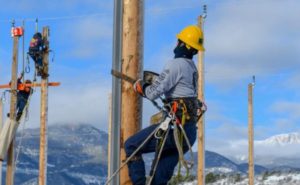
7. They are dedicated
There are so many ways that lineworkers are dedicated. First, they’re committed to their jobs, taking care of their industry and co-workers, and safety. They’re dedicated to learning their craft and continuing that education. Linework is also an industry where its members are more devoted to their families and their communities outside of their work than many other industries.
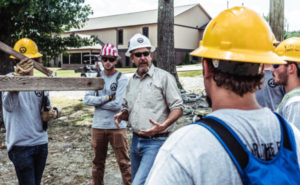
8. Lineworkers are one of the oldest brotherhoods in America
The International Brotherhood of Electrical Workers, which was formed in 1891, is one of the 10 biggest unions in the nation with more than 700,000 members. Lineworkers have a long history of banding together. Several local unions began to form in 1870, but the majority didn’t last very long. Unions started to gain strength in the 1880s and it was in the early 1890s that they had enough band together to eventually form the IBEW. At its peak, the union had more than 1 million members.
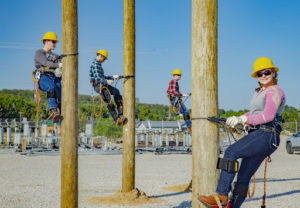
9. They are HEROES, they are brave, and they deserve it
Even with all of the past accomplishments, even with the risk they face on an almost daily basis, even with the fact that they are needed to restore our lives after disasters and issues, lineworkers are never thanked enough for the work they do. In fact, they usually face the opposite. Public officials are often more critical of lineworkers who are putting in long hours and risking their lives to get power back to the regions they serve, none of which is deserved. When public officials thank the first responders, it’s rare to hear lineworkers among that group.
These are the people who sacrifice time with their families and risk their lives to make sure your family has the power they need. Every single lineworker deserves our thanks and the recognition for the hard and dangerous work they’ve done for us for nearly 200 years.
